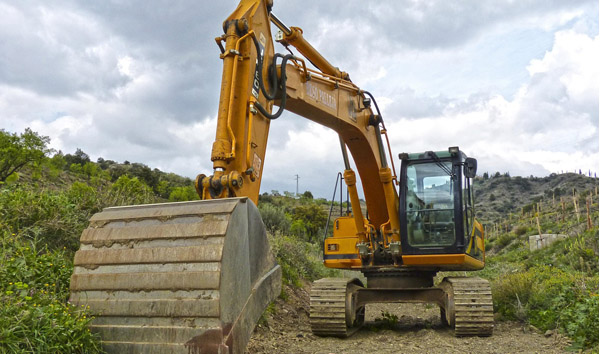Revolutionizing Container Loading with Advanced Rough Terrain Forklifts
2025-07-04 05:00:28
The logistics and construction industries are increasingly relying on Rough Terrain Forklifts for container loading operations in challenging environments. These specialized machines combine rugged durability with high lifting capacity, ensuring efficiency in ports, construction sites, and remote locations. This report explores the technological advancements, operational benefits, and industry applications of rough terrain forklifts for container loading.
Enhanced Performance in Challenging Environments Rough terrain forklifts are engineered to handle uneven surfaces, steep inclines, and loose substrates, making them indispensable for container loading in off-road conditions. Unlike standard forklifts, these machines feature reinforced tires, advanced suspension systems, and powerful engines capable of navigating mud, gravel, and sand. Their ability to lift heavy containers—often exceeding 10,000 lbs—ensures seamless operations in ports and construction zones where conventional equipment would falter.
Key Technological Innovations Modern rough terrain forklifts incorporate cutting-edge technologies such as hydrostatic transmissions, load-sensing hydraulics, and intelligent stability control. These features optimize fuel efficiency while maintaining precise handling during container loading. Additionally, telematics systems enable real-time monitoring of machine performance, reducing downtime and maintenance costs. The integration of ergonomic cabins with enhanced visibility further improves operator safety and productivity in demanding environments.
Industry Applications and Case Studies The versatility of rough terrain forklifts for container loading is evident across multiple sectors. In port logistics, they expedite the movement of shipping containers between storage yards and transport vehicles. Construction firms utilize them to transport materials in undeveloped sites, while mining operations rely on their durability for heavy-duty lifting. Case studies from leading logistics providers highlight a 30% reduction in loading times when deploying rough terrain forklifts compared to traditional alternatives.
Operational Advantages Over Conventional Forklifts When compared to standard forklifts, rough terrain models offer superior traction, higher ground clearance, and enhanced load-bearing capabilities—critical for container loading in unstable terrains. Their all-wheel-drive systems and articulated chassis provide unmatched maneuverability, reducing the risk of accidents. Furthermore, their robust construction minimizes wear and tear, ensuring longevity even in extreme conditions.
Future Trends and Market Growth The global market for rough terrain forklifts for container loading is projected to grow at a CAGR of 6.8% through 2030, driven by increasing demand in emerging economies and infrastructure projects. Innovations such as hybrid powertrains and autonomous operation are set to redefine efficiency standards. As industries prioritize sustainability, electric rough terrain forklifts are gaining traction, offering zero-emission solutions without compromising performance.













